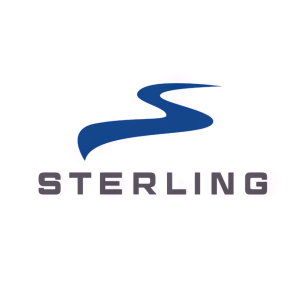[SCHEDULE 13G/A] Sterling Infrastructure, Inc. SEC Filing
Schedule 13G Overview 鈥� The Vanguard Group & Ralliant Corp (RAL)
On 30 June 2025, The Vanguard Group filed a Schedule 13G reporting passive beneficial ownership of Ralliant Corp鈥檚 common stock. Vanguard now controls 13,174,096 shares, representing 11.65 % of RAL鈥檚 outstanding shares. The filing is made under Rule 13d-1(b) because Vanguard is an SEC-registered investment adviser ("IA").
Voting vs. dispositive authority
- Sole voting power: 0 shares
- Shared voting power: 49,118 shares
- Sole dispositive power: 12,898,650 shares
- Shared dispositive power: 275,446 shares
While Vanguard has virtually no direct voting power, it retains the right to dispose of nearly all of the reported shares, indicating the holding is spread across indexed and managed funds that delegate voting to third parties or follow fund-level policies.
Implications for investors
- Crossing the 10 % threshold makes Vanguard a significant institutional holder, potentially increasing RAL鈥檚 visibility among passive and ETF-tracking investors.
- The passive 13G filing (rather than an activist 13D) signals no intention to influence control or strategy.
- Concentrated ownership may add liquidity support but could create share-supply risk if Vanguard trims its position.
The certification confirms the stake was acquired in the ordinary course of business and not to influence management. The document is signed by Ashley Grim, Head of Global Fund Administration, on 7 July 2025.
- Large institutional endorsement: Vanguard鈥檚 11.65 % stake signals confidence and may attract additional passive inflows.
- Enhanced liquidity: A sizable index-fund position typically narrows bid-ask spreads and supports daily trading volume.
- Concentration risk: Vanguard鈥檚 ability to dispose of nearly 13 million shares could pressure the stock if large redemptions occur.
- Limited governance influence: Near-zero sole voting power means Vanguard is unlikely to advocate for shareholder-friendly changes.
Insights
TL;DR: Vanguard鈥檚 11.65 % passive stake boosts liquidity and visibility but has limited governance impact.
Vanguard鈥檚 filing is routine for an index manager whose AUM pushes it above the 10 % threshold. The near-zero sole voting power shows most shares sit in funds that outsource proxy decisions or vote proportionally, so management should not expect activism. For investors, the presence of a mega-cap manager provides liquidity and may reduce volatility, yet the potential for large-block sales remains a technical overhang. Fundamentally, the filing does not alter RAL鈥檚 earnings outlook or strategy, so I consider the market impact modest and largely sentiment-based.







